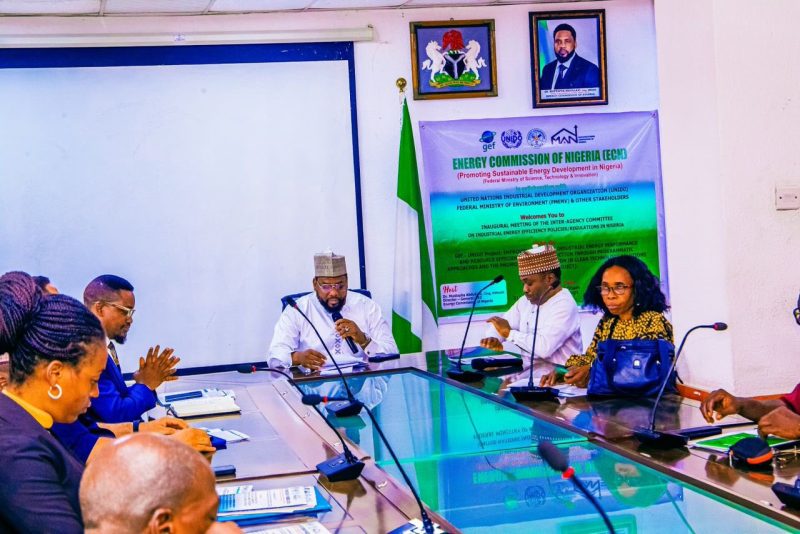The Nigerian Government, through the Energy Commission of Nigeria (ECN) and the Global Environment Facility (GEF) of the United Nations Industrial Development Organisation (UNIDO), has officially launched an inter-agency committee to improve industrial energy efficiency policies and regulations.
The initiative aims to drive sustainable energy practices within the industrial sector and involves collaboration with key stakeholders, including the Federal Ministry of Environment and the Manufacturers Association of Nigeria (MAN).
The project, titled “Improving Nigeria’s Industrial Energy Performance and Resource Efficient Cleaner Production through Programmatic Approaches and the Promotion of Innovation in Clean Technology Solutions,” was launched in Abuja to enhance the environmental energy performance of the country’s industrial sector.
Dr. Mustapha Abdullahi, the director of ECN, highlighted the project’s goals of accelerating the adoption of industrial energy efficiency practices and improving environmental performance through resource efficiency and cleaner production.
He emphasised that industrial energy efficiency is a cross-sectoral concern that impacts various areas of the economy.

The committee’s formation represents a significant step towards achieving Nigeria’s national development goals and promoting sustainable industrial growth.
Abdullahi explained that the committee would provide strategic guidance, facilitate inter-agency collaboration, ensure access to relevant information, and offer technical advice on project outputs.
The committee’s responsibilities also include guiding the technical working group to review past efforts and ensure the project’s outputs align with national development priorities.
Abdullahi underscored the importance of a solid policy and legislative framework to promote energy efficiency, especially in sectors where such practices are still emerging.
Oluyomi Banjo, National Programme Coordinator for Environment and Energy at UNIDO, commended Nigeria’s strides in industrial energy efficiency.
He stressed the need for efficiency, innovation, and self-sufficiency to ensure the country’s competitiveness in light of rising global energy costs.
He also noted that the project, backed by the Global Environment Facility, will focus on 13 selected industrial cities across Nigeria.
Banjo reiterated UNIDO’s commitment to supporting Nigeria’s industrialisation efforts and emphasised that a coordinated approach would help the country achieve its energy efficiency goals.
Project consultant Okon Ekpenyong explained that one of the expected outcomes of the initiative is to enhance the government’s knowledge base, enabling the strengthening of national policies and regulatory frameworks for industrial energy efficiency.


 Trending
Trending 